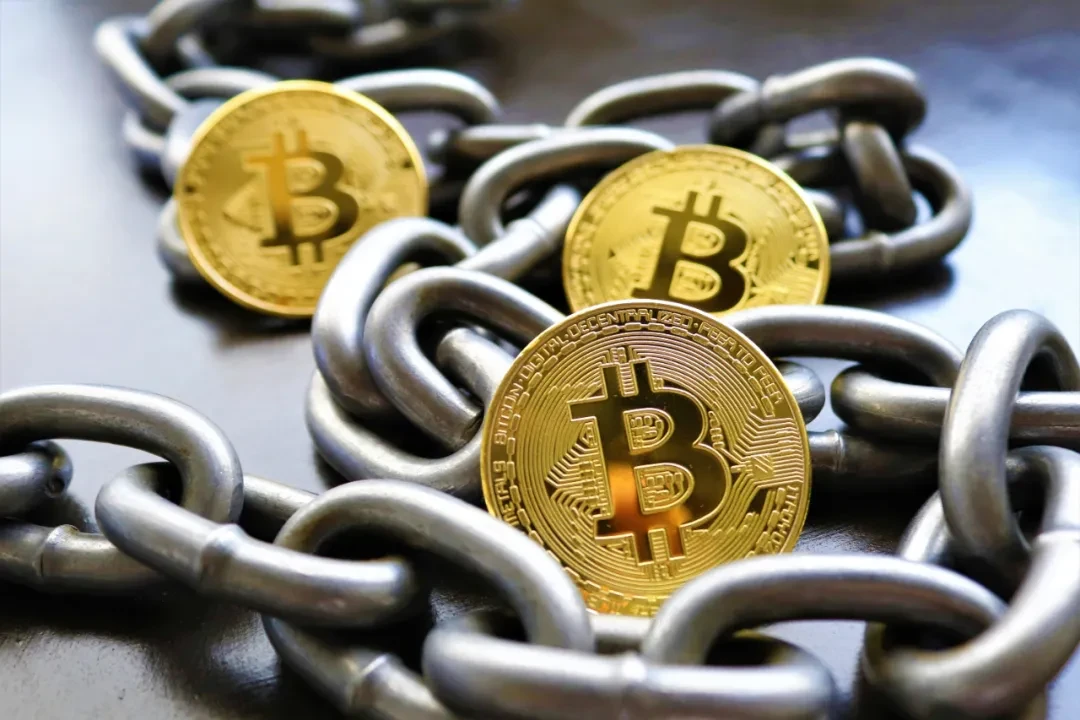Web3 Lawyer: Peoples Court Newspaper published an article, what are the difficulties in the judicial disposal of virtual
At the end of August, the Supreme Peoples Court issued the 2024 Judicial Research Major Project Bidding Announcement . At first glance, this has little to do with the cryptocurrency circle, but if you look closely, you will find that the key funding topics clearly state Research on the Disposal of Virtual Currency Involved in Cases. Perhaps you still think, Oh, this is just a research topic, and it will take a long time to be put into practน้ำแข็ง!

*Image source: Screenshot of the official website of the Supreme People’s Court of China. Well, here comes the latest news on September 3, when the People’s Court DAIly published an article entitled “The Judicial Disposal of Virtual Currency Must be Standardized”, which mentioned: “In current judicial practice, the disposal of virtual currency has become a focal issue that has attracted much attention.” “The current legal regulation of the judicial disposal of virtual currency is imminent.” “Highly concerned”, “focus”, and “imminent”, these words all together depict the current concern of the Chinese judicial community about the judicial disposal of virtual currency, and its strong determination to implement a solution.

*Source: Screenshot from China Court Network
At the same time, the article also raises the legal issues commonly faced in the current judicial disposal of virtual currencies in China, including ownership identification, virtual currency value assessment, and legal realization of virtual currencies . This coincides with the views of the article Three Major Difficulties in the Disposal of Virtual Currency in Criminal Cases published by Mankiw Law Firm as early as November 2023. In addition, in the article of Mankiw Law Firm, lawyer Liu Honglin conducted an in-depth analysis of the three major problems, which he would like to share here.
How to determine the ownership of virtual currency?
The identification of virtual currency ownership is the premise and basis for judicial disposal. Due to the anonymity and decentralization of virtual currency, its ownership does not rely on real-name accounts or registration and filing with third-party institutions, but is realized through cryptographic principles. Simply put, whoever holds the private key (a complex string of numbers or characters) corresponding to the virtual currency has the right to control the virtual currency.
Therefore, in judicial practice, how to determine whether the virtual currency that has been sealed, seized or confiscated belongs to the criminal suspect or defendant, and whether there are other legitimate rights and interests holders, is an extremely challenging issue.
At present, judicial organs mainly obtain the virtual currency involved in the case through the following methods:
(1) Search, seize or confiscate electronic devices (such as mobile phones, computers, hardware wallets, etc.) in the possession of criminal suspects or defendants, and extract the private keys or passwords stored therein through technical means;
(2) Search, seize or confiscate paper documents (such as paper wallets, notebooks, etc.) containing private keys or passwords from suspects or defendants;
(3) Search, seize or confiscate the recharge cards, bank cards, payment accounts, etc. used by the suspect or defendant, trace the flow of funds, find the account on the virtual currency exchange or other platform, and obtain the virtual currency therein through judicial assistance or technical means;
(4) Directly obtain the private key or password in the possession of the suspect or defendant based on his confession or other evidence.

Regardless of the approach, the judiciary will have to face the following issues:
(1) How to prove that the criminal suspect or defendant has actual control over the private key or password obtained, rather than borrowing, stealing or forging it?
(2) How to prove that the virtual currency corresponding to the obtained private key or password is the proceeds of crime or the proceeds of crime, rather than being obtained legally?
(3) How to exclude or deal with claims of other third parties who claim to have legitimate interests in the acquired virtual currency?
(4) How to prevent private keys or passwords obtained in judicial proceedings from being leaked, stolen or abused?
In response to the above issues, from a compliance perspective, Mankiw believes that the following measures should be taken:
(1) When obtaining private keys or passwords, as much evidence as possible should be collected to prove their source, nature and ownership, such as search records, seizure lists, electronic data extraction reports, bank statements, transaction records, network logs, witness testimony, etc., and try to avoid relying solely on the confession of the suspect or defendant;
(2) When determining whether the virtual currency corresponding to the private key or password is the proceeds of crime or the proceeds of crime, the facts and evidence of the case should be combined to apply a combination of direct presumption, indirect presumption and statutory presumption, such as tracing the source, flow and use of the virtual currency, analyzing the causal relationship between the virtual currency and the criminal behavior, and comparing the amount, type and value of the virtual currency with the legal income and property status of the criminal suspect or defendant;
(3) When handling other third parties’ claims for rights and interests in virtual currency, they should fully respect and protect their legitimate rights and interests, inform them of the remedies such as applying for hearings, appeals, and litigation in accordance with the law, review the evidence they provide, and make judgments in accordance with the principle of no-fault liability and the principle of request for relief;
(4) When keeping and using private keys or passwords, one must strictly abide by confidentiality systems and standard procedures, establish a special account management mechanism, prevent the leakage, theft or abuse of private keys or passwords, and take immediate remedial measures once any abnormal situation is found, and hold the relevant responsible persons accountable.
How to evaluate the value of virtual currency?
Virtual currency valuation is an important part of judicial disposal. Since the virtual currency market lacks a unified supervision and pricing mechanism, its price is affected by many factors, is extremely volatile, and there is a large price difference between different trading platforms. Therefore, in judicial practice, how to determine the value of virtual currency that has been sealed, seized or confiscated in order to realize, refund or surrender it is a very challenging problem. At present, judicial organs mainly use the following two methods to evaluate the value of virtual currency:
(1) Refer to the real-time or historical market data of virtual currency exchanges or other authoritative institutions and convert virtual currency into legal tender according to a certain exchange rate or conversion formula;
(2) Entrust a qualified and reputable professional organization or individual to issue an appraisal report in accordance with scientific appraisal principles and methods to determine the specific value.
Regardless of the method adopted, the judicial authorities need to face the following issues:
(1) How to choose an appropriate time point for evaluation , taking into account the volatility and timeliness of virtual currency prices? Should the price at the time of seizure, detention or confiscation be used as the basis, or the price at the time of liquidation, refund or surrender, or other reasonable compromise solutions be adopted?
( 2) How to choose the appropriate evaluation criteria ? Considering the wide variety of virtual currencies and the price differences between different trading platforms, should we use the price of a specific platform as the basis, or the average price of multiple platforms, or adopt other reasonable compromise solutions?
(3) How to ensure the objectivity and fairness of the evaluation results ? Considering that there are improper behaviors such as manipulation, fraud, insider trading, etc. in the virtual currency market, which may affect the authenticity and validity of the evaluation data, how to prevent conflicts of interest and corruption in the evaluation process?
(4) How to deal with objections and disputes regarding the evaluation results? Considering that the evaluation results may involve multiple stakeholders, such as criminal suspects or defendants, victims, and third parties, how to fully protect their rights to know, participate, defend themselves, and seek redress?

In response to the above issues, from a compliance perspective, Mankiw believes that the following measures should be taken:
(1) When determining the time point for evaluation, the time point that best reflects the true value and market conditions of virtual currency should be selected based on the specific circumstances of the case and the purpose of the judicial process, taking into account factors such as fairness, rationality, and operability, such as the time of the incident, the time of seizure, the time of judgment, or the time of execution, and dynamic adjustments should be made when necessary;
(2) When determining the evaluation criteria, the criteria that best reflect the liquidity and fairness of virtual currencies should be selected based on the characteristics of virtual currencies and market rules, such as taking well-known, standardized, and secure trading platforms at home and abroad as references, and taking a weighted average or interval value when necessary;
(3) When ensuring the objectivity and fairness of the assessment, the relevant laws and professional ethics shall be strictly observed, the review, supervision and accountability of the source, process and results of the assessment data shall be strengthened, and relevant information shall be disclosed to all stakeholders in a timely, open and transparent manner;
(4) When handling assessment objections and disputes, the legitimate rights and interests of all stakeholders should be fully respected and protected, and they should be informed of the remedies such as raising objections, review, reconsideration or litigation in accordance with the law. The evidence and reasons they put forward should be examined and decisions should be made in accordance with legal procedures and standards.
How to legally convert virtual currency into cash?
The method of converting virtual currency into cash is the ultimate goal and result of judicial disposal. Since virtual currency does not have the same legal status as legal tender in mainland China, it cannot be directly used for payment, settlement or surrender, and its value can only be realized by converting it into legal tender. Therefore, in judicial practice, how to choose the appropriate method of converting virtual currency so as to dispose of the seized, confiscated or confiscated virtual currency in a timely and effective manner is an urgent problem to be solved. At present, judicial organs mainly use the following methods to convert virtual currency into cash:
(1) By entrusting a third party to sell virtual currency in exchange for legal currency on a virtual currency exchange;
(2) Transferring virtual currency to willing and able purchasers through judicial auction in exchange for legal currency;
(3) Through judicial mediation or other negotiation methods, return the virtual currency to the original right holder or transfer it to a new right holder in exchange for corresponding compensation or damages; 
Regardless of the approach, the judiciary will have to face the following issues:
(1) How to choose the right time to cash out? Considering the volatility and uncertainty of virtual currency prices, should we cash out as soon as possible to lock in value and avoid risks, or cash out at the right time to gain benefits and optimize results, or adopt other reasonable compromise solutions?
( 2) How to choose the appropriate monetization channel? Considering the complexity and diversity of the virtual currency trading market, should we choose a formal, legal, and secure trading platform or institution, or a flexible, convenient, and efficient trading method or means, or adopt other reasonable compromise solutions?
(3) How to ensure the compliance and security of the cash-out process? Considering that virtual currency transactions may involve legal regulations and risk prevention in terms of taxation, foreign exchange, anti-money laundering, etc., how to comply with relevant laws and policy requirements and prevent the loss, theft or freezing of funds during the cash-out process?
(4) How to deal with the distribution and ownership of the results of realization? Considering that the results of realization may involve multiple stakeholders such as criminal suspects or defendants, victims, and third parties, how to reasonably determine their deserved shares based on legal provisions and judicial judgments, and pay, return or surrender them in a timely manner? 
In response to the above issues, from a compliance perspective, Mankiw believes that the following measures should be taken:
(1) When determining the timing of realization, the timing should be based on the specific circumstances of the case and the purpose of the judicial process, taking into account factors such as fairness, rationality, and feasibility, and choosing the timing that best realizes the value of virtual currency and protects the rights and interests of stakeholders, such as when the judgment takes effect, when the execution begins, or when the execution ends, and making dynamic adjustments when necessary;
(2) When determining the channels for monetization, the channels that can best ensure the security of virtual currencies and realize their fair value should be selected based on the characteristics of virtual currencies and market rules, such as first choosing well-known, standardized, and secure trading platforms or judicial auction platforms at home and abroad, and making comparative selections or using a combination of channels when necessary;
(3) When ensuring the openness and transparency of the monetization process, the parties shall strictly abide by legal provisions and professional ethics, strengthen the review, supervision and accountability of the monetization process and results, and disclose relevant information to all stakeholders in a timely, open and transparent manner;
(4) In dealing with the distribution of realization results, the legitimate rights and interests of all stakeholders should be fully respected and protected, and they should be informed of the remedies such as raising objections, review, reconsideration or litigation in accordance with the law. The evidence and reasons they put forward should be examined and a ruling should be made in accordance with legal procedures and standards.
Attorney Mankiws Summary
One wrong judgment causes more harm than numerous crimes, because the latter only pollutes the water flow, while the former pollutes its source. This famous saying used to explain the importance of judicial justice is also applicable in the context of the judicial disposal of virtual currency. China has always had a clear policy on the negative social effects of virtual currency, which is to clearly oppose and resolutely crack down on it. However, the formulation of rules usually needs to conform to the การพัฒนา of the times and social needs. This is one of the key reasons why the Supreme Peoples Court of China has included judicial disposal of virtual currency as a key topic. Mankiw Law Firm has long been committed to providing legal services for Web3. It also hopes to continue to promote the research process in Chinas virtual currency judicial field based on its many years of service experience, whether through participation in research projects or the provision of daily legal services, and ultimately ensure that Web3.0 occurs legally in China!
This article is sourced from the internet: Web3 Lawyer: Peoples Court Newspaper published an article, what are the difficulties in the judicial disposal of virtual currency?
Headlines Trump-related stocks and cryptocurrency concept stocks fell after the US election debate After the US presidential debate, Trump Media Technology Group (DJT.O) fell 13% in pre-market trading. Blockchain stocks fell across the board, with MicroStrategy (MSTR.N) and Riot Platforms (RIOT.O) falling by about 3% and Coinbase (COIN.O) falling by 2%. The US core CPI is in line with market expectations, and the US dollar index DXY has risen by more than 20 points in the short term The annual rate of the US core CPI in August was 3.2%, the same as last month, in line with market expectations, after falling for four consecutive months. The US dollar index DXY rose by more than 20 points in the short term and is now at 101.67. The U.S. core CPI…






